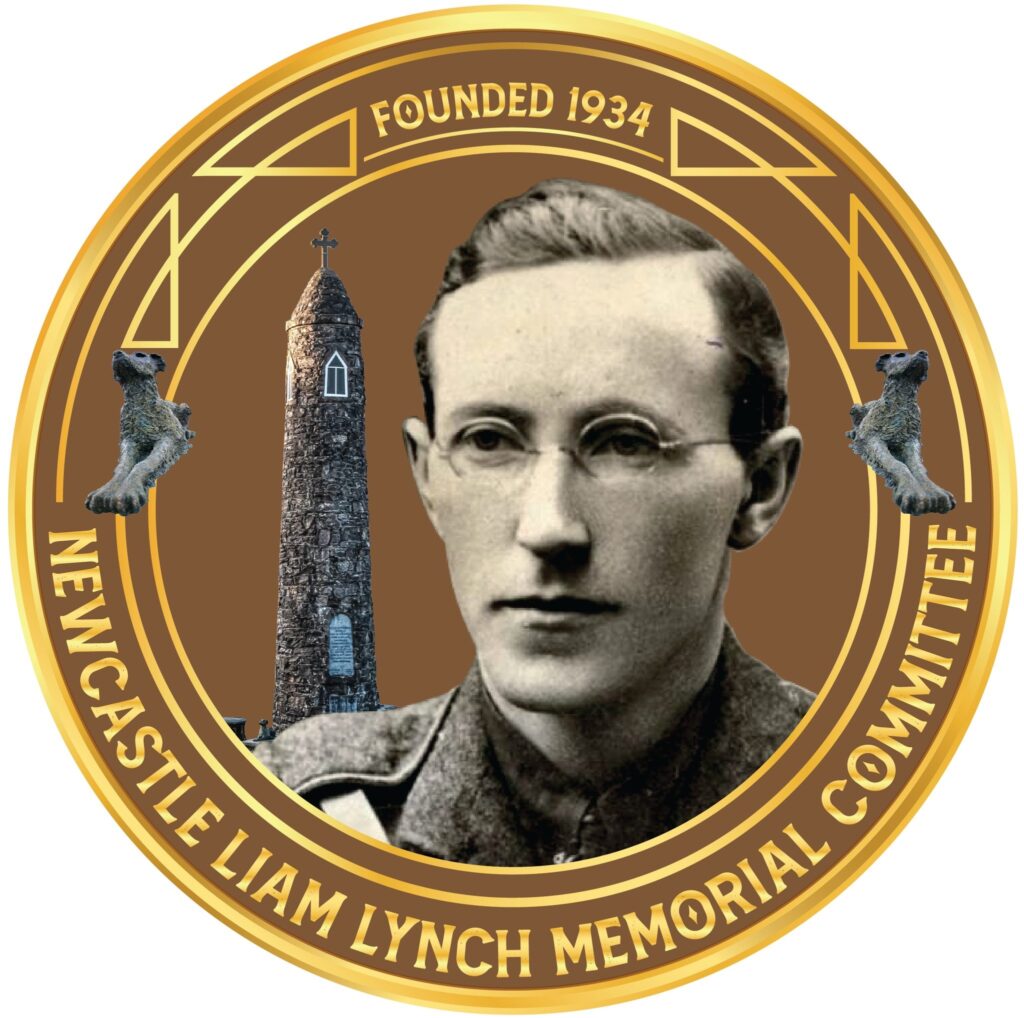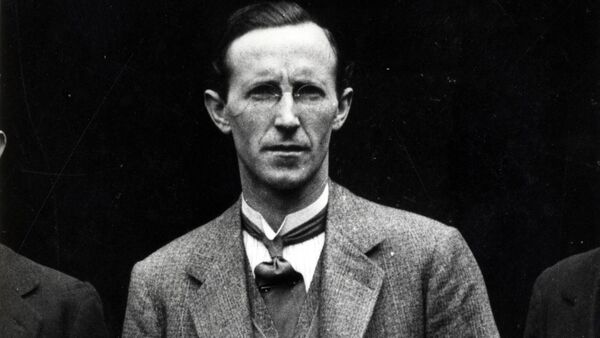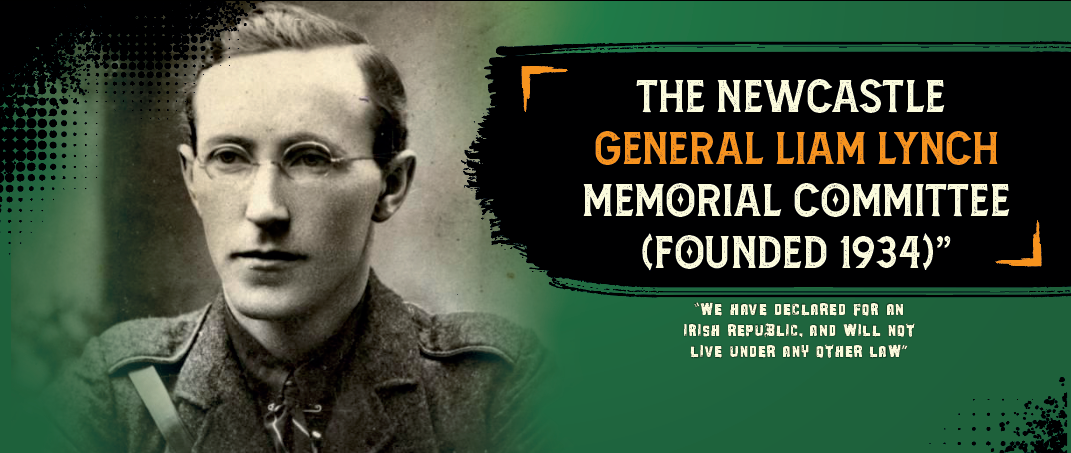
The Newcastle General Liam Lynch Memorial Committee, (Founded in 1934) have events planned on Easter Saturday (8th) and Easter Sunday (9th) with the main Centenary Commemoration event taking place on Easter Monday April 10th 2023.
The Chairman, Tipperary TD Mattie McGrath, and the Newcastle General Liam Lynch Memorial Committee look forward to welcoming large crowds to Newcastle across Easter Weekend and the Committee hope that their full programme of commemoration events will adequately celebrate the centenary of Lynch’s death and honour the memory of a man who was prepared to lay down his life and refuse to compromise his belief in a true 32 county Republic of Ireland.

Brief information about General Liam Lynch.
Liam Lynch was born in Barnagurraha, Co Limerick to Jeremiah and Mary Kelly Lynch. At 17 he was apprenticed to O’Neill’s hardware in Mitchelstown. Shortly after his apprenticeship began he joined the Gaelic League and the Ancient Order of Hibernians. He joined the Irish Volunteers after witnessing the arrests of the Kent family by British forces after the failed Easter Rising of 1916. Two of the Kent brothers, David and Richard were shot during their arrest. Richard would later die of his wounds and a third brother, Thomas, was executed by Royal Irish Constabulary (RIC).
During the Irish War of Independence Lynch helped to reorganise the Cork IRA, becoming commandant of the Cork No. 2 Brigade. He was arrested by the RIC in August 1920 in Cork City, along with Terence MacSwiney, who would later die in Britain during a hunger strike. Lynch was not recognised by RIC officers and was released. Lynch continued to prove his leadership abilities throughout the war including the capturing of the Mallow Barracks in September 1920 with Ernie O’Malley. In April 1921, the IRA was reorganised into divisions and Lynch was made Commander of the 1st Southern Division. He would hold this post until the truce in July 1921.
Lynch opposed the Anglo-Irish Treaty signed on 6 December 1921. Much of the IRA, of which Lynch was Chief-of-Staff, was opposed to the treaty. Lynch was initially opposed to the occupation of the Four Courts on 14 April 1922, but when the Free State forces attacked in June, Lynch joined the garrison. He was arrested after the garrison fell, but was released under the condition he would stop the fighting.
By early 1923 Lynch came under increasing pressure from some of his fellow officers to call for a cease-fire. Lynch refused. On 10 April 1923, Lynch was cornered by Free State troops in the Knockmealdown Mountains in Co Tipperary. He was shot and died later that night in Clonmel. He was only 29 years old. He was buried in Fermoy. Frank Aiken took over as Chief-of-Staff of the Anti-Treaty forces after Lynch’s death. On 30 April 1923, he called for a cease-fire, ending the Irish Civil War.



Liam Lynch Memorial, Crohan Mountain, Newcastle, Co. Tipperary.

